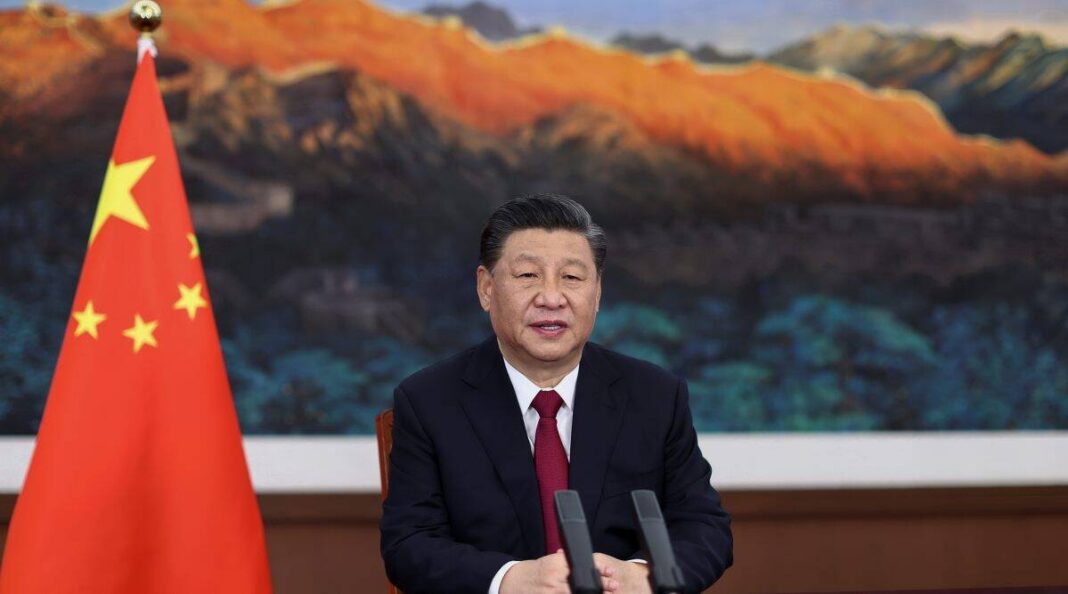Chinese President Xi Jinping has declared the 20th National Congress of the Communist Party of China a “complete success,” where he secured a third term. However, the party will have to tackle the most challenging period in decades as a “pervasive sense of pessimism envelopes people” in China, the Sydney Morning Herald reported. The most important challenge that the Xi-led CCP government faces is the slowing of the Chinese economy.
Writing in the Sydney Morning Herald, Yun Jiang suggested that ever since the reforms and opening up in the late 1970s, the CCP’s social contract with the people has remained on the basis of economic growth and a sustained increase in the standard of living. Even though Xi Jinping is focused on the importance of ideology, economic growth remains important for the people of China. In comparison to the economic heydays of the 2000s and 2010s, people in China are no longer as certain their quality of living will improve or if the next generation will be able to live a better life.
This pessimism is especially visible among young people in China. Urban youth unemployment has reached 20 per cent, with many of them trying to find work and some are even disillusioned with work itself, as per the report. The “lying flat” movement which is similar to “quiet quitting” in the United States or Australia has gone viral and the urge to work to better one’s situation in life no longer remains strong. Some of China’s economic downtown could likely be due to the zero-COVID policy, which appears to have no end as cities in China continue to be under lockdown due to COVID-19 cases.
The lockdown imposed by Chinese authorities has affected businesses and people’s livelihoods, impacting both supply and demand. Notably, China has been adhering to a zero-COVID policy since the emergence of coronavirus cases, which includes mass testing and lockdowns. Amid the economic slowdown, Chinese President Xi Jinping is making attempts to “diversify the source of party legitimacy.” Writing in The Sydney Morning Herald, Yun Jiang argued that two more sources of legitimacy have appeared from the party congress, which includes common prosperity and nationalism.
The report described “common prosperity” as Xi Jinping’s “security policy” to reduce inequality and improve the quality of life for ordinary people. So far, it is too early to analyse whether inequality is reducing, as the term was announced a year back. Yun Jiang suggested that the policy has so far resulted in some big companies turning to philanthropy. The Communist Party of China in the property sector has been making efforts to decrease the excesses of the property market. However, the real estate crisis has led to the government changing its policy. The party has been trying to encourage nationalism among the people of China since the 1990s. Xi Jinping has been doubling his efforts to work for the party’s long-term aim of “national rejuvenation.”
The rising nationalism in China in the last 30 years has been built on the increasing prosperity of China. However, a sense of pessimism has replaced optimism in the past year, with people becoming less nationalistic as a result, as per the report. Pessimism is not only due to slowing growth. However, it is also due to the zero-COVID policy which has affected the state. Some of the “more inhumane acts” of the government officials who implement quarantine and testing have been criticised in China, including “mistreatment of pets to forcing people to stay in their buildings during an earthquake,” Yun Jiang mentioned in The Sydney Morning Herald report. China’s COVID-19 measures have resulted in distrust and outcry towards local officials and raised doubts about the zero-COVID policy. The party congress has hinted that the COVID policy will continue in China and the party official responsible for lockdowns in Shanghai was given the second most powerful post in the party. As per the report, COVID testing now accounts for up to 1.3 per cent of China’s GDP and 7.2 per cent of public revenue.

